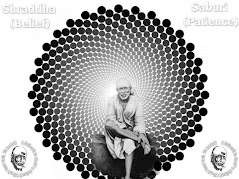Arunachalakavirayar
(from:
1711 To: 1779), famous
for his Rama Nataka Kirtanas, is held in high reverence by all vidwans.

Arunachalakavirayar was born in Tillaiyadi in Tanjore district as
the fourth son of Nallathambi Pillai (faher) and Valliammal (mother). His father
though a Jain by birth, embraced Shaivaism
later. Arunachala's education began in his fifth year, fifth month, fifth day and had traditional instruction till
the age of twelve, when he lost his father. Arunachala
then went to the Dharmapuram mutt to pursue his studies in
Tamil granthas and agamas also improved his Sanskrit knowledge.
His proficiency was such that even when he was 18, it was indicated to
him that he could look forward to becoming the head of the mutt.
However, Arunachala
decided to follow grahasthasramam (family life), as
propounded by Thiruvalluvar
in Tirukkural and by Kamban's Ramayanam. He continued his
studies in Tamil and Sanskrit till his thirtieth year. Then got married and set up a kasukadai (jeweler's shop) which
spared enough time for him to delve deeper into Divya prabandhas, Tirumurais,
Vedaagamas and other religious
works. His studies convinced him that the greatest and noblest work for the good of humanity was
creation of Tirukkural and that all the mandates enumerated by Thiruvalluvar
in it were exemplified in the life of Sri Rama as portrayed by Kambar.
The turning point in
the life of Arunachala came when he
went to Pondicherry, to buy some gold for his kasukadai, where he met two musicians Venkatarama Iyer and Kodandarama Iyer of
Sattanapuram.
On the way to Pondicherry, at Sirkazhi, Arunachala stayed in the branch of the Dharmapuri
mutt. It's head Chidambaram Pillai, a former student mate of Arunachala, had composed a piece 'Kattalai Malai',
and wanted to compose a piece on Sirkazhi, but owing to preoccupation he could
not progress beyond the preliminary stages. He requested Arunachala to
complete it which Arunachala did in the same night and sent to Chidambaram Pillai through a
messenger before leaving
for Pondicherry.
Chidambaram Pillai was so pleased with the scholarly piece that he
decided to retain Arunachala in Sirkazhi and made arrangements to bring
the latter's family from Tillaiyadi and
to settle them there.
On his way back from Pondicherry, at Sirkazhi, Arunachala was pleasantly
surprised by the bounty of his old friend and decided to stay
permanently in
Sirkazhi gaining him the title 'Sirkazhi Arunachalakavirayar'.
The two musicians mentioned earlier, Venkatarama Iyer and
Kodandarama Iyer,
approached Arunachala to get some of their doubts cleared and to learn
Kamba Ramayanam. They suggested
that Aunachala could compose an opera for which they would help in
setting the tunes,
ragas and taala. Arunachalakavirayar chose the life of Sri Rama as the
theme for
his opera as Kamban had handled it in the form of poetic stanzas and
Bala Bharati had dealt with the life of Rama in Chanda viruttam,
both these works for scholars and Arunachala wanted to create one which
ordinary men and
women could understand.
In the first phase, Arunachala composed from the beginning up to
the Kirtana, 'Adada Veliye Purappadada' in the Yuddha Kanda and gave
it to his disciples who set the tunes and
sang them at Madras. It became very popular there. On their return, they
persuaded Arunachalakavirayar to finish the whole work
into an integrated opera and thus the famous 'Rama Nataka Kirtanas' was born. Its simple diction and homely proverbs, clothed in appealing music, won the hearts of
listeners, learned and ordinary.
He desired its Arangetram (first performance on stage) should be at Srirangam
temple before Lord Ranganathaswami as Kamban did
earlier. Further, like Kamban, he too wanted to sing Thodayams invoking other deities and sages
as it was Kamban's work he had transformed to Kirtanas. This resulted
in creation of the immortal piece 'En Pallikondeeraiya' in Mohana
raga, a favorite of Bharatha Natya dancers,
since the song helps in bringing out the artistic talents of the dancer to fullness.
Kavirayar
could not present it before Tulaja Maharaja of Tanjore as the circumstances in the kingdom were
unfavorable at that time. So he went to Pondicherry to present it to the savant and
statesman Ananda Ranga
Pillai who gave a letter of introduction to Manali Muttukrishna Mudaliar of Madras. Muttukrishna Mudaliar
who had already heard a few of the songs was pleased to meet the author of those
songs
and to know that he had the complete version of the integrated opera.
Since the troubles of the Tanjore kingdom were over by then Kavirayar presented his work
before King Tulaja
and later Ananda Ranga Pillai and other wealthy patrons invited the Kavirayar to hear
the beautiful opera and
showered Kavirayar with rich presents.
Though the excellence of Arunachalakavirayar's one single work, 'Rama Nataka
Kirtanas' earned him
fame, he has authored many other excellent literary works like 'Ajamukhi natakam', 'Anumar pillai Tamil', 'Sirkazhi sthalapuranam', and
'Sirkazhi kovai'.
Courtesy: http://www.angelfire.com/musicals/kallidaihari/Aarunachalakavi.htm
A Kavi 001-avatAram_cheydiDuveerE-jOnpuri-Thiruchur V ramachandran.mp3
A Kavi 002-hanumAnE_sAmikku_inda_adayAlam-malayamArudham-Sanjay Subramaniam.mp3
A Kavi 003-kaDaikkaNNAl_irangi-asAvEri-DK Jayaraman.mp3
A Kavi 004-parabrahma_svarUpamE-gauLipantu-Smt Soumya.mp3
A Kavi 005-vinAyaka_sharaNam-saurAshtram-Thiruppambaram Sri T.N.Sivasubramaniam.mp3
A Kavi 007-rAmanaik-kaNNAra-mOhanam-Smt Soumya.mp3
A Kavi 008-rAmanait-taruvAi-mOhanam-DK Jayaraman.mp3
A Kavi 009-hanumanE_malayamArudham_Rupaka-TNS.mp3
A Kavi 010-ingE_irum_kANum-kalyANi-aruNAcala_kavi-Smt Soumya.mp3
A Kavi 012-rAmanukku_mannan_mudi-hindOLam-DK Jayaraman.mp3
A Kavi 013-rAmanukku_mannan_mudi-hindOLam-Suryaprakash.mp3
A Kavi 014-yArenreNNAmalE-shankarAbharaNam-M Santhanam.mp3
A Kavi 015-Arivar_yaar_unnai_mukhari_misra_chapu-Sanjay subramanyam.mp3
A Kavi 016-arivAr_yAr_unnai_arivAr-mukhAri-DKJ.mp3
A Kavi 017-Hanumane-Malayamarutha-KVn.mp3
A Kavi 018-rAmanukku_mannan_mudi-hindOLam-TVR.mp3
A Kavi 019-VandaanVandaan-Ariyakudi.mp3
A Kavi 020-yArO_ivar_yArO-bhairavi-MSS.mp3
A Kavi 021-eppaDi_manam_tuNindadO-husEni-TK Rangachari.mp3
A Kavi 022-yArenreNNAmalE-shankarAbharaNam-DKJ.mp3
A Kavi 023-enakkun_irupadam-rAgamAlikA-KVN.mp3
A Kavi 024-yArenru_rAghavanai-yadukulakAmbhOji-Ariyakudi.mp3
A Kavi 025-rAmanukku_maNNan_mudi-hindhOLa-Adhi-KVNi.mp3
A Kavi 026-sharaNam_sharaNam_enrAnE-saurAshtram-MSS.mp3
A Kavi 027-KandenKanden-Behag-Aadi-DKJ.mp3
A Kavi 028-khamAs-aruNAcala_kavi-TVR.mp3
A Kavi 029-eppadi_manam-husEni-TKRangachari.mp3
A Kavi 030-caraNam_caraNam-sourAshTram-Ariyakudi.mp3
A Kavi 031-enakkun_irupadam-rAgamAlikA-DKJ.mp3
A Kavi 032-yArO_enreNNAmalE-shankarAbharaNam-Trichur_V_Ramachandran.mp3
A Kavi 033_yArenru_rAghavanai_yadukulakAmbhOji-KVN.mp3
A Kavi 034-shrI_rAmacandranukku-madhyamAvati-Trichur_V_Ramachandran.mp3
A Kavi 035-sObhanam_sholla_vandEn-madhyamAvati-DKJ.mp3
A Kavi 036-Kanden_kanden_kanden_sitaiyai_kanden-Mukhari-V_ShankarNarayanan_VVRavi_TRSivaraman.mp3
A Kavi 037-shri_rAmachandhranakku-madhyamAvathi-Palghat-R-Ramaprasad.mp3
A Kavi 038-anda_rAma_saundaryam-kEdAragauLa-.PALGHAT_K.V.NARAYANASWAM.mp3
A Kavi 039-Inda-Vibheeshanan---Khamas-Ariyakudi.mp3
A Kavi 040-antA_rAma_soundarya-kEdAra_gouLa-TKRangachari.mp3




